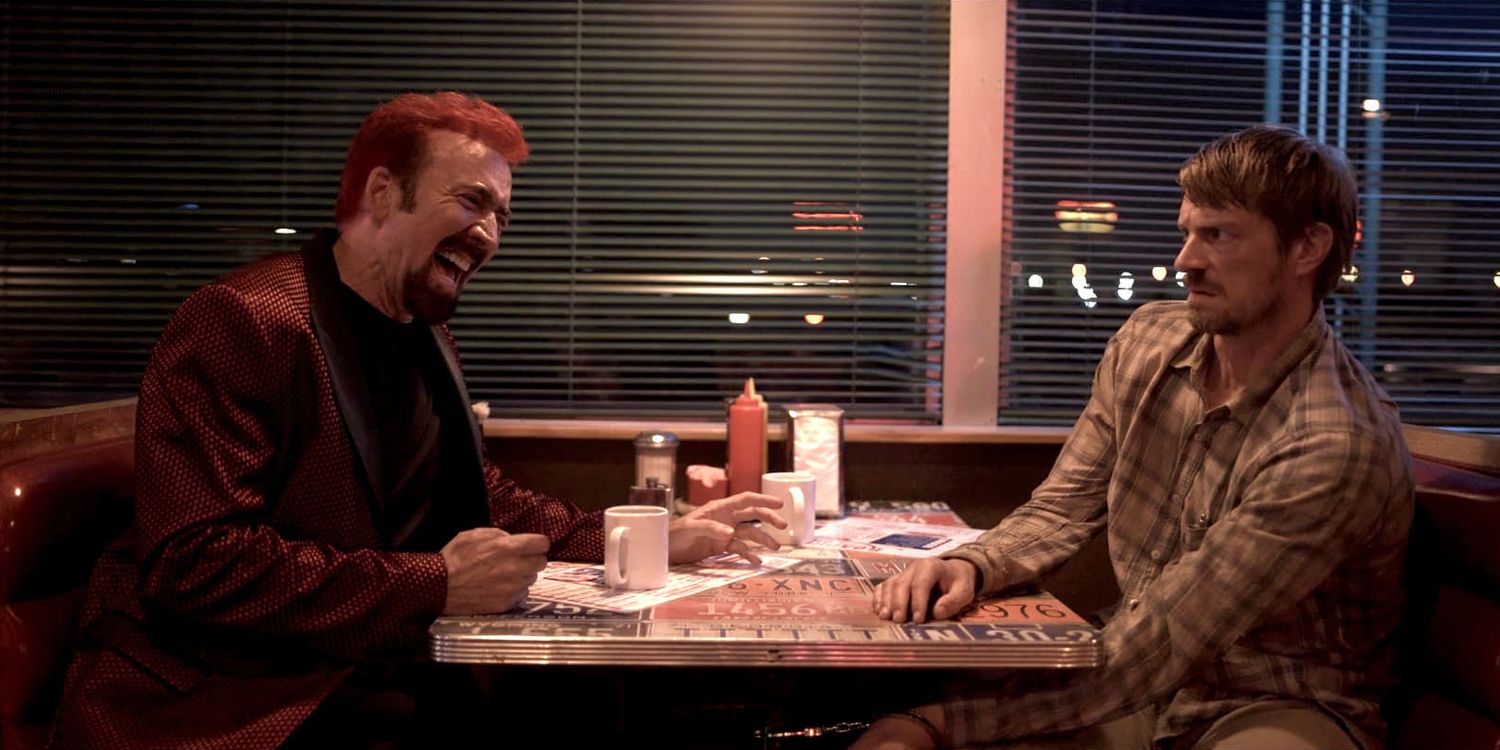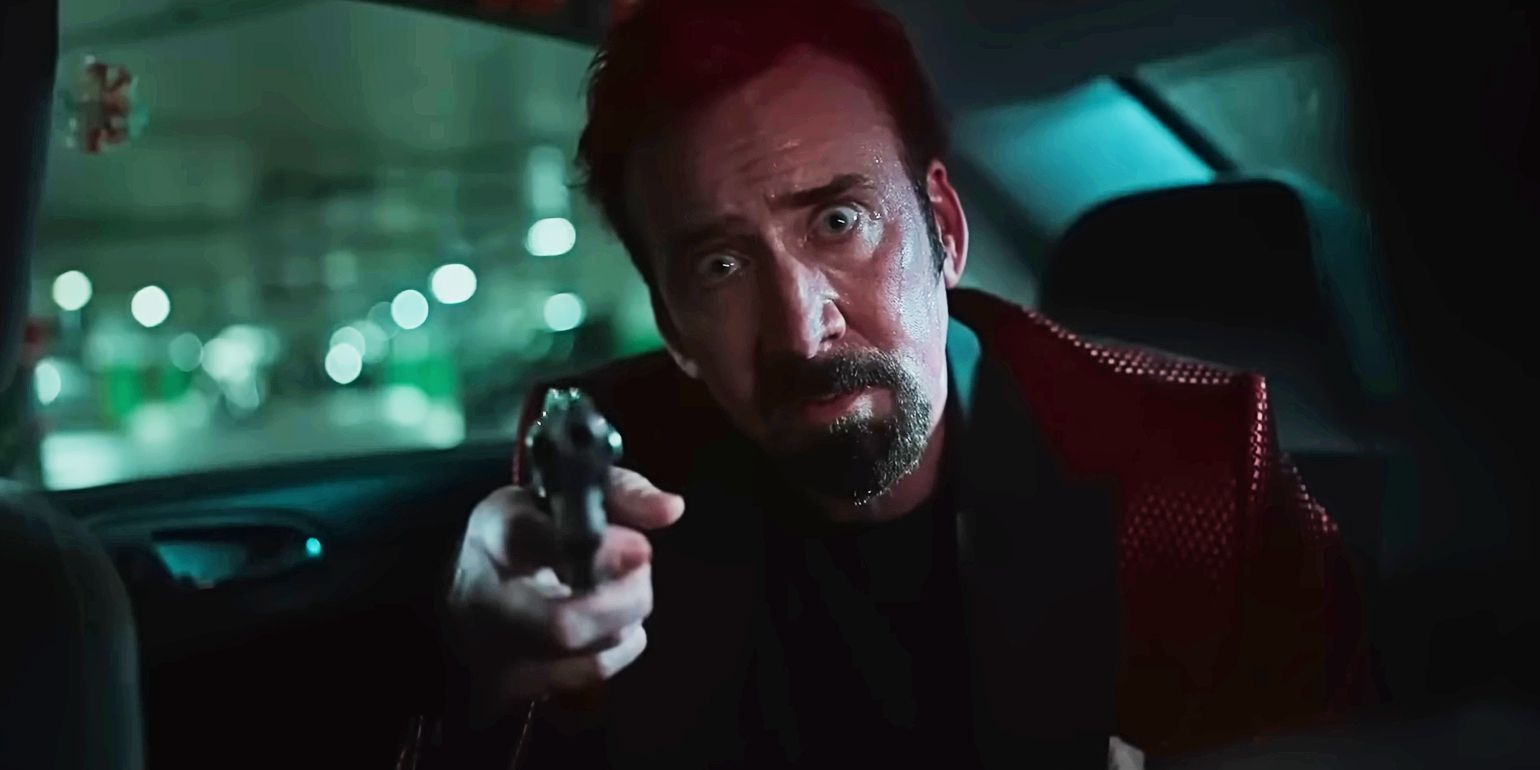Editor’s Note: This piece was written during the 2023 WGA and SAG-AFTRA strikes. Without the labor of the writers and actors currently on strike, the movie being covered here wouldn’t exist.
Sympathy for the Devil is a fundamentally flawed film; holding our attention is the bare minimum for a thriller, and it manages that only sporadically. It does, however, make for an interesting review subject. While watching it, I found myself conscious of its machinations, spending the time I was supposed to be invested in the story thinking through why it wasn’t drawing me in. The right pieces are there, for the most part, and though they cannot seem to form a cohesive whole long enough to sustain tension, the reasons why it builds or dissipates are always quite clear. Those who enjoy turning movies into intellectual exercises, as I am about to do, might wring a bit more entertainment from Sympathy for the Devil than most. But even then, for anyone with 90 minutes to spend and a sea of options, its value is limited.
The premise of this movie, which is directed by Yuval Adler and written by Luke Paradise, is enticingly simple. A man, officially credited as The Driver (Joel Kinnaman), drops off his son and heads to the hospital where his wife has gone into labor. After he pulls into the parking lot, The Passenger (Nicolas Cage) gets into his backseat. The Driver, at gunpoint, with no knowledge of where they’re going or why he’s being targeted, is told to drive out of the city. It’s a strong setup for a gripping narrative, founded on a few key questions: Has Cage’s character taken a hostage at random, or was Kinnaman’s family man chosen for a reason? If it was intentional, does he have the right guy? How will the birth figure into this – does it provide urgency to escape and make it back in time, or are The Driver’s wife, son, and unborn child in danger, too?

These questions are Sympathy for the Devil‘s sources of dramatic interest, but the film mishandles them, the final ones especially. Thrillers benefit from a ticking clock, and it should be a major asset that the circumstances of this hostage situation are as interesting as the fact that it happened. But, outside a few phone calls to remind us what’s going on off-screen, this part of the scenario does not prove integral to the plot beyond thematic coincidence. Playing mind games with his captive, Cage’s character is an intentional force of delay, acting like this is little more than a casual interaction. His influence shouldn’t win out over the film itself, but as the birth fades into the background, the pacing of scenes grows languid.
As for The Passenger’s motive and The Driver’s identity, the movie tips its hand much too early. Cage’s performance is erratic, sprinkled with the occasional outburst that has become associated with his screen persona, and this is supposed to keep us guessing whether his actions are calculated or just impulse. But he also speaks to his captive as if he knows him and asks the occasional pointed question, essentially giving the game away. Kinnaman, meanwhile, is miscast. He gives a good performance, but much like Stephen King’s complaint about Jack Nicholson’s casting in The Shining, he just doesn’t read as a “normal” guy. It feels inevitable that The Driver will turn out to be somebody who can handle himself better than he lets on, whether that’s who The Passenger is looking for or not.

Sympathy for the Devil could have used this to its advantage by laying its cards out on the table, but it tries for much too long to hold onto the mystery of its characters’ backstories. This is perhaps the movie’s most critical miscalculation. Once we understand that The Passenger chose his victim for a reason and that The Driver will prove more than he claims, there is no tension in withholding what exactly transpired to bring them to this moment. The details would only serve to reveal character, so that the audience can see the true nature of the dynamic between them. The story could progress to a new phase, fueled by our comprehension and focused entirely on the present. Instead, it’s stuck in a holding pattern, moving through set pieces we struggle to invest in because we know there’s a big reveal coming and nothing can have real consequences until it does.
I can envision a much more interesting movie in which all is revealed the moment the characters arrive at the diner, about halfway through, and perhaps within earshot of the other people inside. The scene would go from being about The Passenger’s escalating frustration at The Driver’s insistence that he is an innocent, as it is now, to a conundrum like the one The Driver faces at the very end (which is so quickly resolved it almost doesn’t register as a choice). The scene could progress almost exactly as it does currently, but because we have a clear understanding of what they both want, the actions they take would have heft. As it stands, Sympathy for the Devil is a missed opportunity with a collection of engaging moments, none sustained enough to really satisfy.
Sympathy for the Devil releases in theaters July 28. The film is 90 minutes long and is not yet rated.
